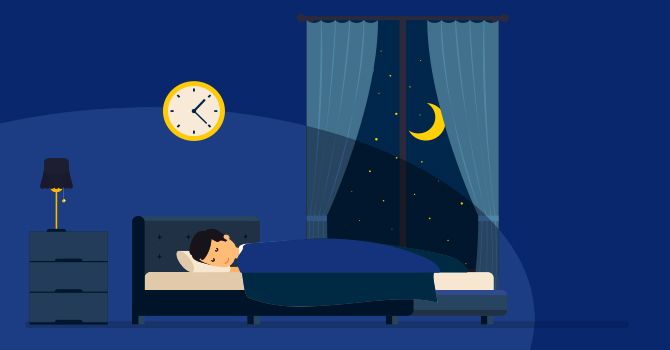Sleep is an essential component of a healthy lifestyle, yet many people tend to neglect it. The average adult requires 7-9 hours of sleep each night to function at their best, but despite this, a significant portion of the population struggles with sleep. This lack of sleep has a significant impact on one's overall health and well-being.

Studies have shown that sleep deprivation can lead to a number of health problems, including a weakened immune system, increased risk of heart disease, and a higher risk of obesity. Lack of sleep can also affect our mental health, causing feelings of irritability, anxiety, and depression.
Moreover, sleep plays a crucial role in cognitive function, allowing the brain to process information and consolidate memories. Inadequate sleep can negatively impact memory and concentration, making it more difficult to perform at work or school.
So, what can be done to improve sleep quality and ensure optimal health? First and foremost, it's important to establish a consistent sleep schedule, going to bed and waking up at the same time each day. Creating a relaxing bedtime routine, such as reading a book or taking a warm bath, can also help to promote sleep.
It's also important to create a sleep-friendly environment. This means keeping the bedroom cool, dark, and quiet, and minimizing exposure to screens (such as smartphones, laptops, and televisions) before bedtime, as the blue light emitted by these devices can interfere with sleep.
Finally, leading a healthy lifestyle, such as eating a balanced diet, getting regular exercise, and managing stress levels, can also help to promote better sleep.
In conclusion, sleep plays a crucial role in overall health and well-being. By prioritizing sleep and creating a sleep-friendly environment, individuals can improve their sleep quality and enjoy the numerous benefits of a good night's sleep.
I try to get 10 hours of sleep. Is that enough … from 9 pm to 7 am